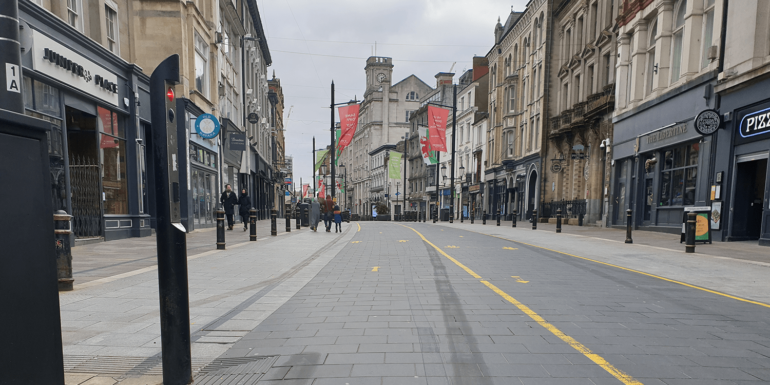Olly Allen walked the city’s usually manic streets as Wales hosted Ireland in the Six Nations on Sunday
IT is Saturday 16 March 2019. Cardiff city centre is a hub of excitement. There is barely room to move among the sea of red and the streets are soundtracked by patriotic chanting. There is a nervous anticipation in the air.
It can only be Six Nations gameday. It is not just any gameday either. Wales are on the verge of winning the Championship and also the Grand Slam. They are playing Ireland, the reigning champions, who still have a slim chance of lifting the trophy themselves but really are out to spoil the Welsh party.
They don’t succeed. Wales are ruthless, winning 25-7 to give Warren Gatland the perfect Six Nations send-off – his third Grand Slam in 11 years.
In the pubs and the streets of Cardiff, the victory parade goes long into the night. Daffodils and leprechauns dancing hand in hand, celebrating rugby but celebrating life as well. This is Cardiff at its very best.
Ireland were back in Cardiff on Sunday afternoon for the opening weekend of this year’s Six Nations, but a lot had changed.
For one, Wayne Pivac has replaced Gatland at the Welsh helm and is under fire after a disappointing first year in charge.
But more strikingly, no supporters are in attendance at the Principality Stadium due to coronavirus restrictions that have now become the norm.
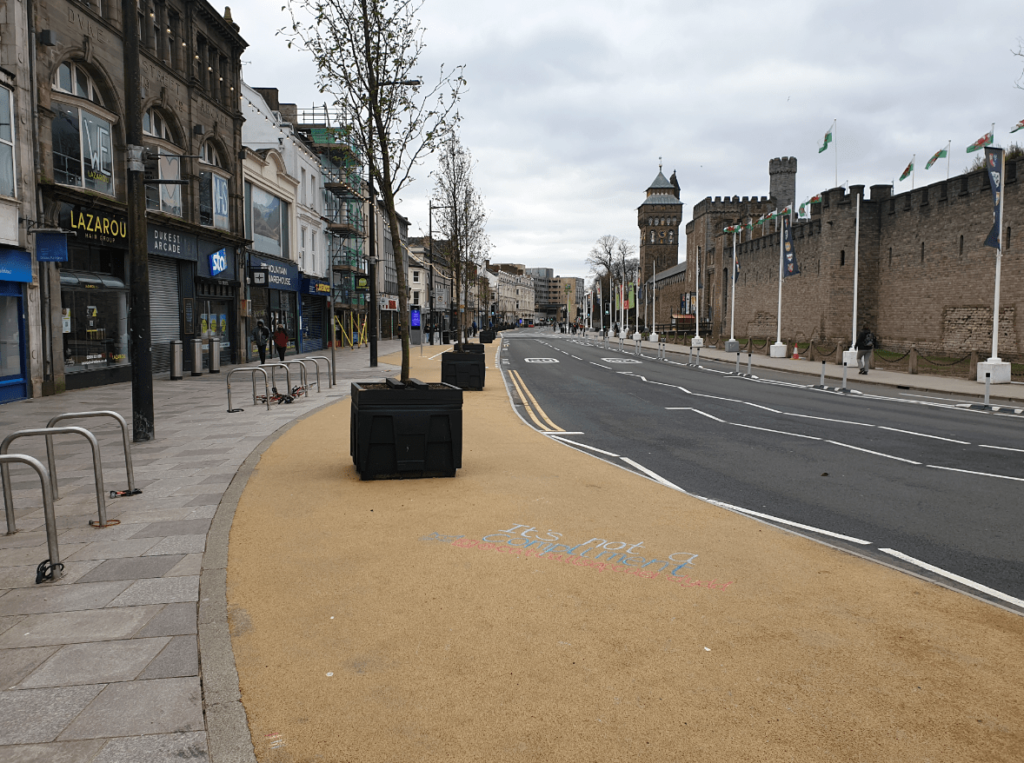
Wales played their final game of last year’s Six Nations – in October – behind closed doors, but at Llanelli’s Parc y Scarlets rather than the Principality Stadium, which was still in use as a temporary field hospital.
Now they are back in the capital, but it is gameday in name only.
The streets are empty, eerily so. There is no endless stream of people coming out of Cardiff Central train station. No one selling scarves and inflatable leeks. No pubs overflowing.
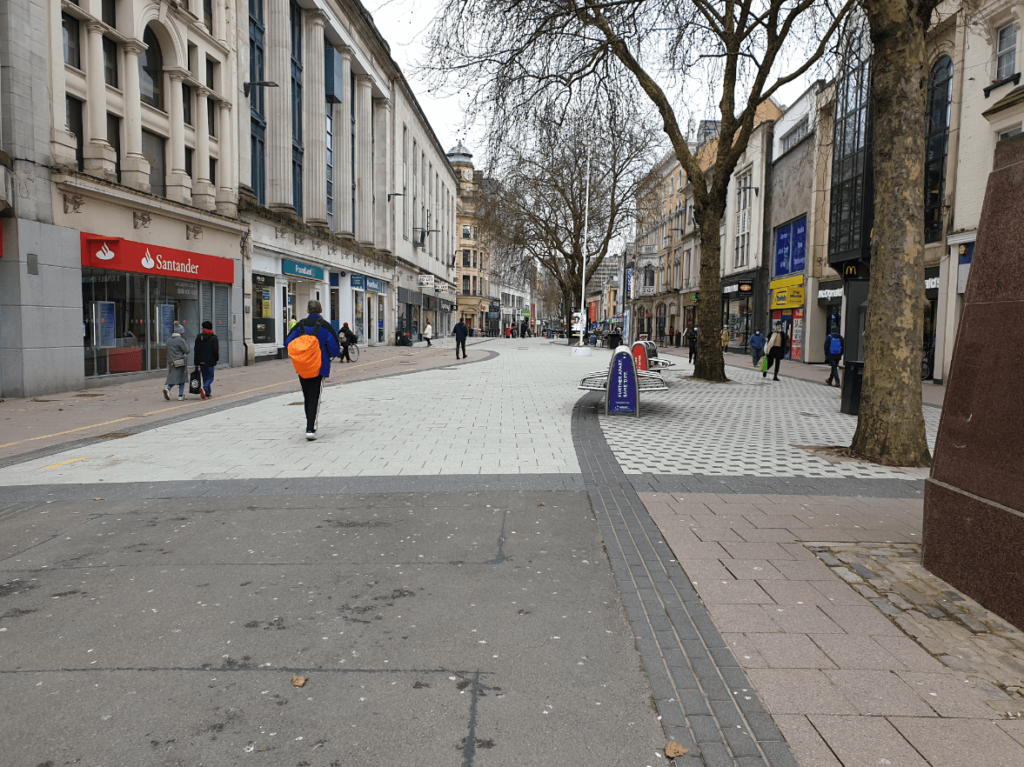
“It’s absolutely rammed. Wall to wall. You have to battle your way through people to serve drinks and food. It’s manic but it’s such an exhilarating feeling. There’s nothing quite like it.”
I have asked Oliver Draper what it is like working in a Cardiff city centre pub on Six Nations gameday. Draper did shifts at The Glassworks on Wharton Street during the tournament last year.
What he is describing feels like something from an alternate universe. There is a sense of nostalgia but also a sudden realisation that people did not always have to be two metres away from each other.
“A normal Saturday or Sunday was always quite chilled, people would come in and out,” Mr Draper says. “But for the Six Nations, it’s a whole day event. People had a reason to be there and the energy would gradually build throughout the day.
“They would come in three or four hours before kick-off and start drinking, and also to make sure they got a good spot in front of the TV screens and projector. We were at maximum capacity within an hour of opening and then stay at that capacity all day.”
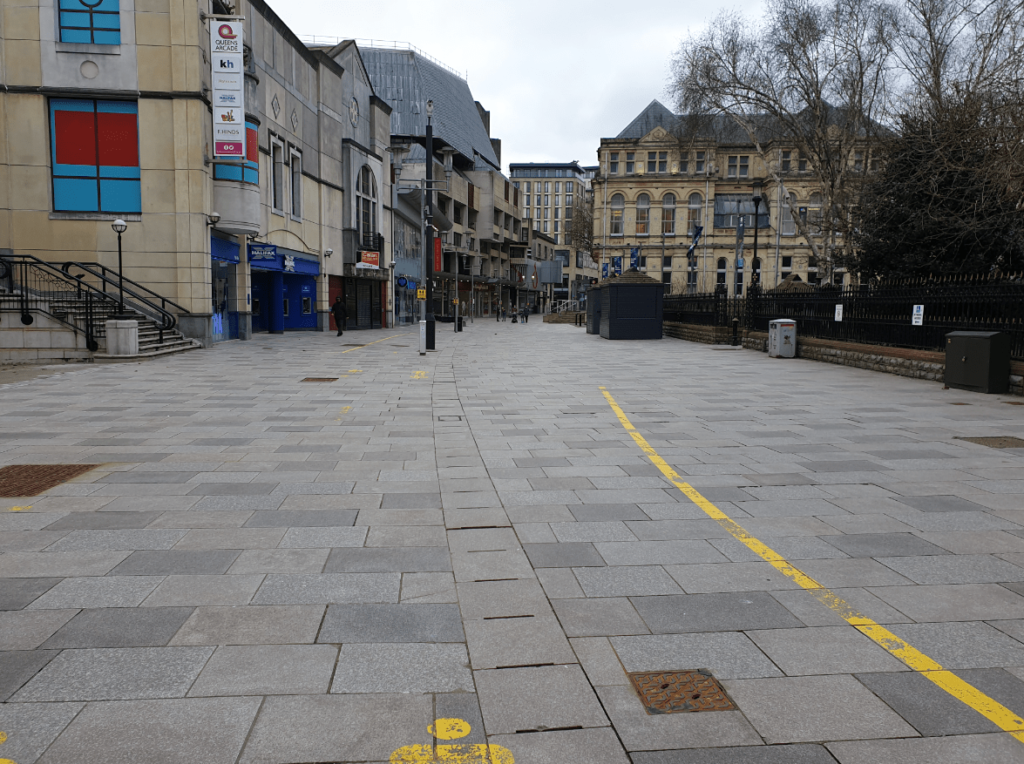
It encapsulates what a Six Nations gameday is. It is not just the couple of hours around the match, it is an all-day party and Cardiff is the perfect host.
But the doors are firmly shut at The Glassworks on Sunday afternoon. They have been since December 19, when the Welsh Government placed the country into alert level 4 lockdown.
It is the same mournful sight at other pre-match watering holes. The Prince of Wales. The Gatekeeper. The City Arms. All desolate. All with the same obituary on their doors: “Closed until further notice”.
There are more seagulls on St. Mary Street than people. There is a police van but it is not there to help crowd control.
I cut down onto Westgate Street, which is usually like a sardine tin full of supporters. Nothing. It is almost incomprehensible.
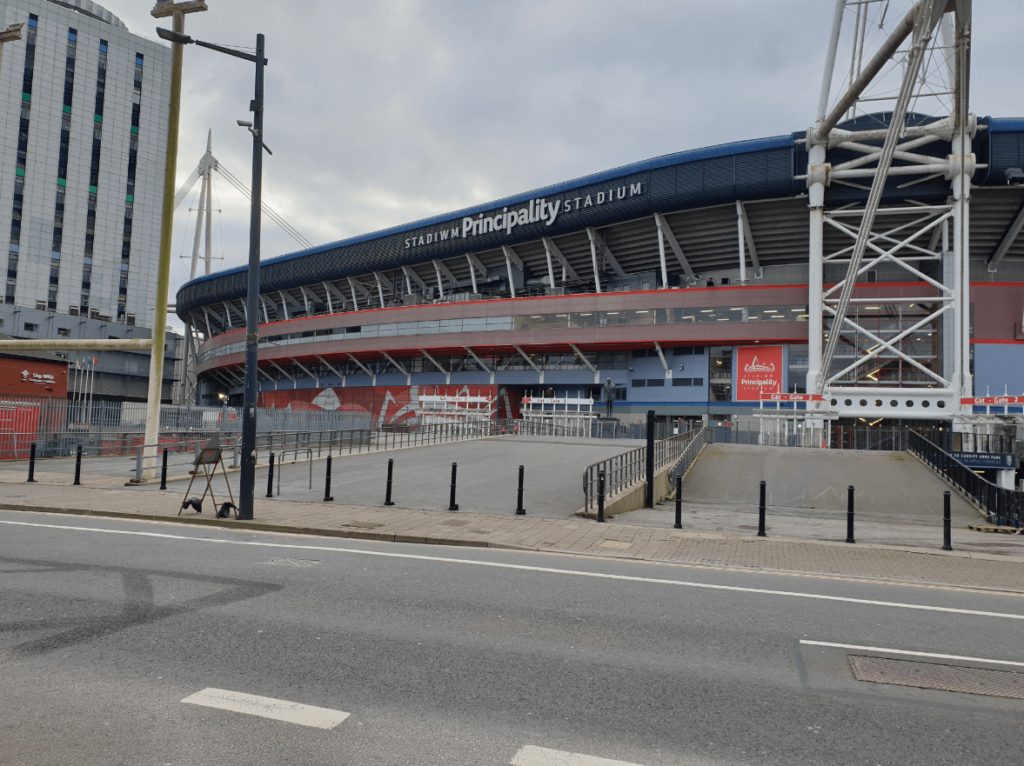
There is a pop up merchandise outlet set up outside of the stadium. It is empty, but not because it has sold out. Items have not even gone on sale. Instead, the outlet is acting as a sign-in and temperature check station for stadium staff.
Kick-off is getting closer, but there is no mad rush past the Sir Tasker Watkins statue to get into the arena.
I make my way around to gates six and seven next to the River Taff, probably the closest you can get to being inside the stadium without forcing entry. I am still struck by how ghostly it is.
Hen Wlad Fy Nhadau plays and not hearing 74,000 supporters roaring along in unison is like throwing a boomerang and not getting it back.
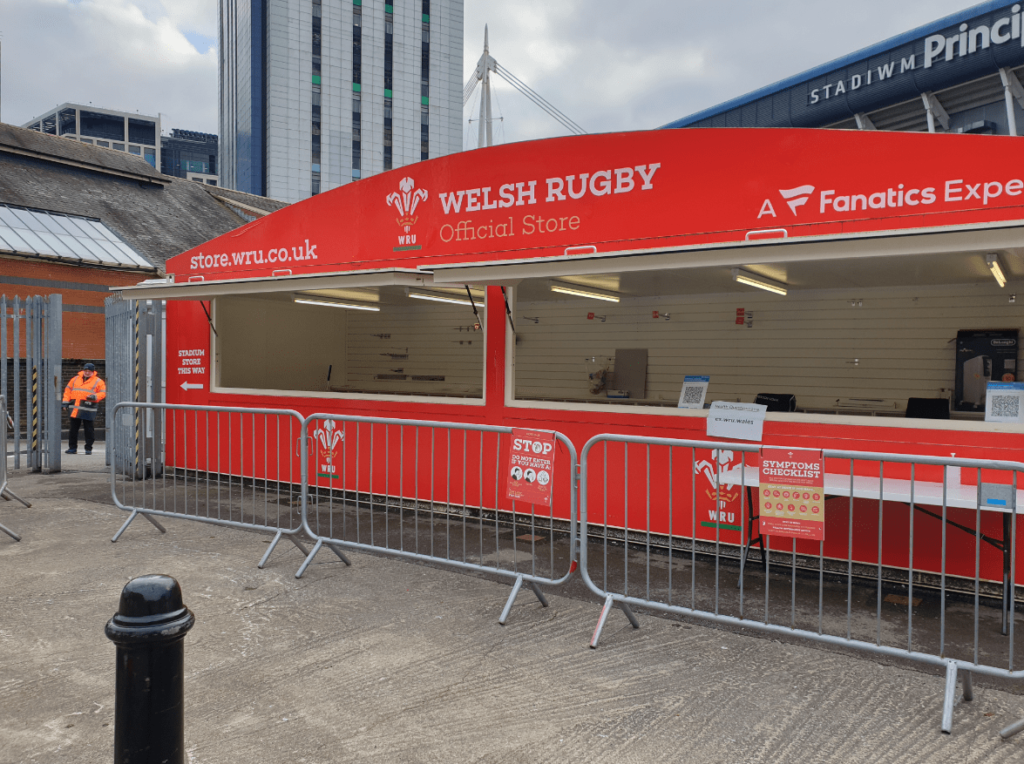
Each year, the Six Nations generates £30m for Cardiff’s economy. Visitors to the city spend around £14m in bars, restaurants, hotels and souvenir shops, while pubs make double their normal daily revenue. 240 jobs are generated by the tournament. Having no spectators this year, and not even any visitors to the city, will be a huge blow.
Throughout her three years as an undergraduate at Cardiff University, Ella Fenwick worked in the hospitality boxes at the Principality Stadium.
Many students take on Six Nations jobs during their degree, with several roles at the stadium available through employment agencies.
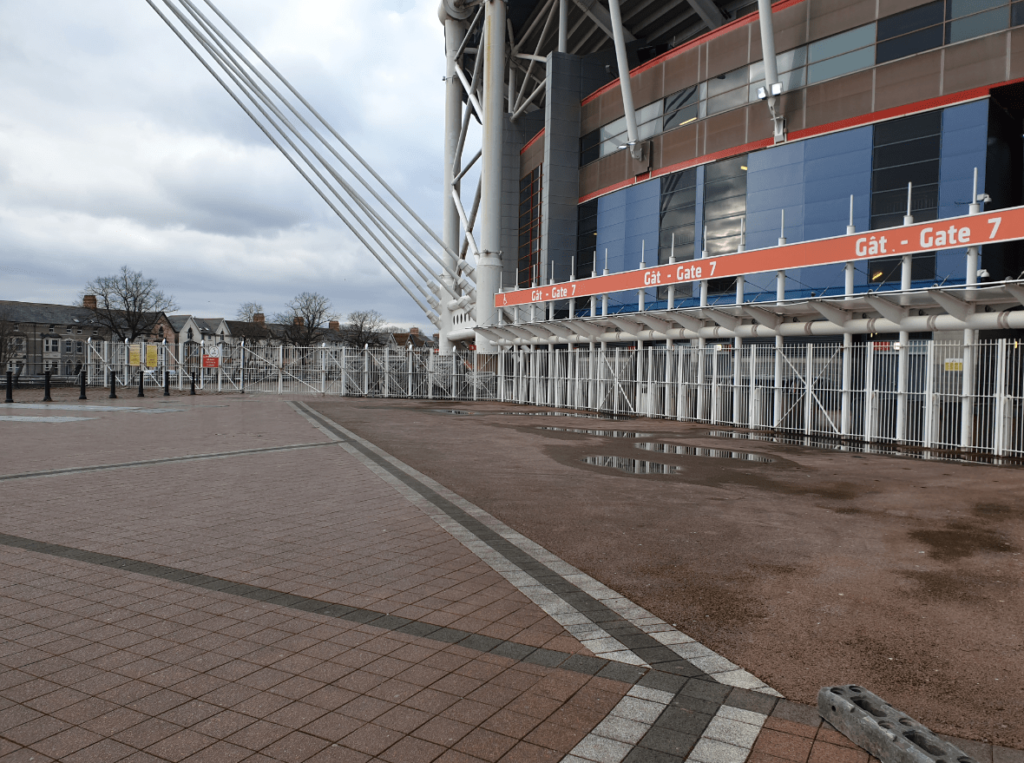
“I was always very reliant on rugby season for my income,” Ms Fenwick says. “People are very generous in the hospitality boxes and the tips that you could generate from working there were amazing. I think I made over £200 on one gameday just from tips.
“Put together all the people who worked in the boxes, the kitchen staff, the security, the supervisors and then those who worked in the bars in the concourses. That’s so many people who won’t be doing those roles this year. I’ve spoken to a few people who I worked with in the stadium and a couple have said they are struggling because it was one of their main sources of income.”
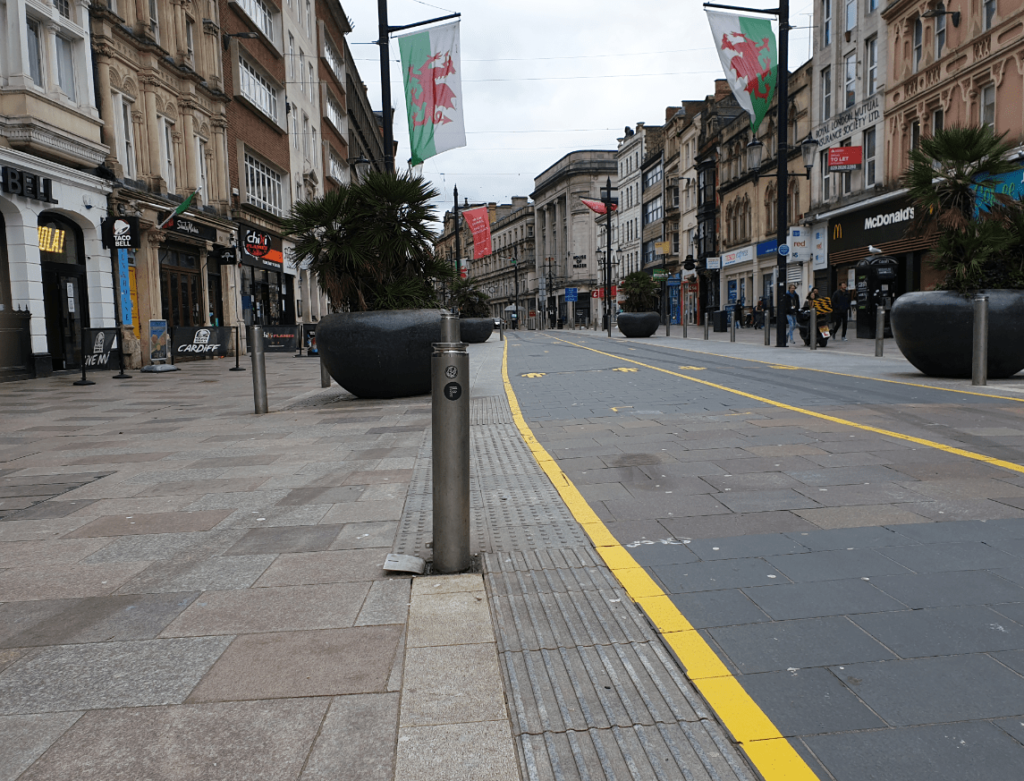
There is undeniably something bleak about Cardiff’s empty streets on Six Nations gameday, but take it as part of a wider picture and it provides a testament to humanity.
The stay at home message is getting through and people are playing their part in stopping the spread of coronavirus.
Six Nations gameday is usually the best showcase of Cardiff as a city, its people and Welsh culture. It will be again in the future.
But for now, fans are giving their support to a more global battle against a relentless opponent. Victory, and normality, is in sight.


